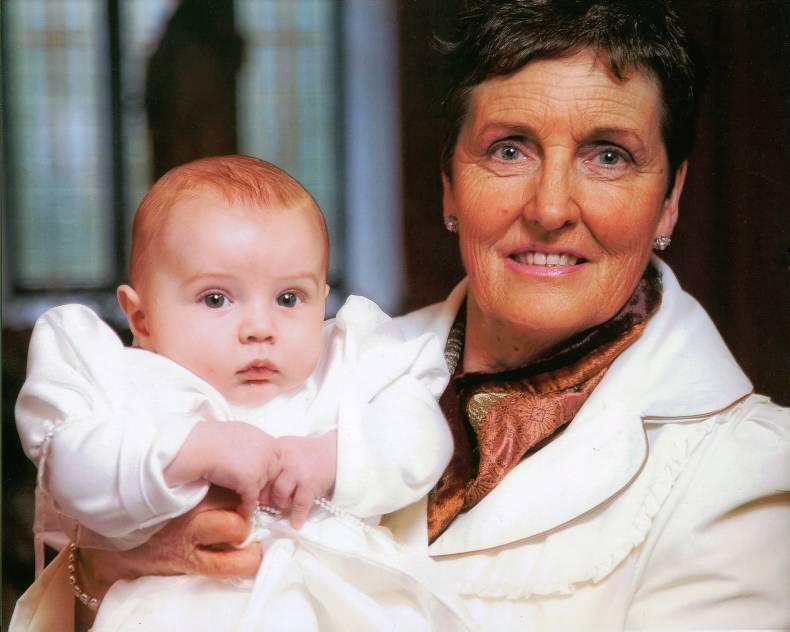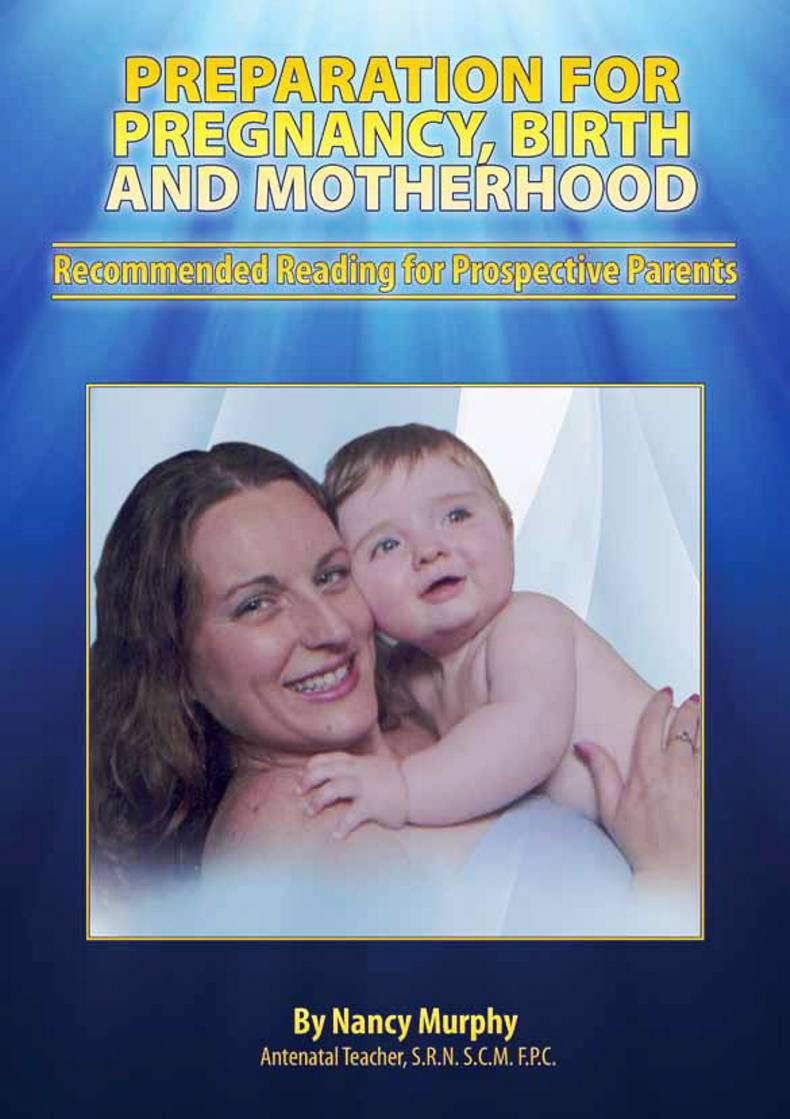How can you best prepare to have a baby? Should you be making lifestyle changes ahead of conception?
Midwife Nancy Murphy believes you should.
“It’s about being at the peak of your health at the time of conception,” she says.
“Our grannies had healthy children without pre-conceptive care, yes, but maternal and infant mortality rates were considerably higher.
“Back then, life was simpler and motherhood and family life formed the greater part of a woman’s work. Women’s lives nowadays are more complex as they try to juggle career choices with parenting and family life. All this can take its toll on health in general.
“While not all women expose themselves to dangers, others may be affected by factors like stress, unhealthy diet, lack of exercise, smoking, obesity, drug abuse (illegal or over the counter), sexually transmitted infections and eating disorders. All these increase the risk of complications in pregnancy and, overall, have a negative effect on pregnancy outcome.
“An unhealthy lifestyle has the potential to endanger the health of the foetus. That’s why you need to prepare your body for pregnancy. In fact, both partners may need to make changes.”
Nancy is author of Preparation For Pregnancy, Birth and Motherhood, her second book on this topic.
A community midwife in London for many years, she later returned to Newcastlewest in Co Limerick where she now runs antenatal classes and a well-woman centre.
How to prepare
So what should a woman wanting to become pregnant do to prepare?
“If you’re planning a pregnancy, you should set up an appointment with your doctor and tell him or her,” she says.
“If you have a healthy lifestyle then there should be nothing to worry about, but there may be things that you need to change prior to conception. If you have a medical condition and are taking medication, you will need to discuss these in light of a future pregnancy.”
Your doctor may do some blood tests to screen for certain diseases or conditions, she states. Pre-conceptive blood tests usually recommended include:
Full blood count – blood group and rhesus factor.Rubella titre (German measles).Varicella.Syphilis.Hepatitis B.Tuberculosis.HIV.“A breast check as well as a cervical smear test may be done. Tests for bacterial infections may also be indicated if there are symptoms present. Genetic issues can also be discussed.”
What you can do
So what can you do to help yourself in the months leading up to conception?
Nancy’s general advice is as follows:
1. Stop smoking.2. Stop drinking alcohol.3. Prescribed medication, vitamin supplements or over-the-counter medicines currently being taken may need to be changed in light of a possible pregnancy. Get advice from your doctor or pharmacist. 4. Look at your nutrition and adjust your diet if required. It’s important to start taking folic acid prior to becoming pregnant and for three months into the pregnancy to ensure healthy development of the baby and prevention of neural tube defects (NTDs) such as spina bifida.5. If overweight, start a weight-reducing programme6. If underweight, increase your calorie intake and achieve normal weight. Some women may need help from a dietician.7. Select a safe and healthy exercise regime which can be integrated into pregnancy.8. Discontinue hormonal contraception provided pre-conceptive tests are within normal limits and any medication previously taken has been adjusted by your doctor.9. Observe and record menstrual cycles.10. Check possible hazards in the workplace and home environment.11. If travelling to other countries, check immunisation and allow the recommended safety limits (usually three months) to elapse before you conceive.Lifelong benefits
But what are the reasons for all this advice?
“Pre-conceptive care has colossal potential to positively influence the outcome of pregnancy,” Nancy says. “A woman who makes the effort to become healthy before conceiving will continue throughout pregnancy and after the baby is born, so it’s good for the whole family.”
“Smoking is a no-no in pregnancy. Babies born to smokers tend to be much smaller and are at increased risk of being underdeveloped and undernourished. The whole scenario with smoking is not good, including being exposed to passive smoking in the home.
“The World Health Organisation stance is no alcohol during pregnancy. Alcohol affects the development of the baby, especially in the early weeks, so drinking alcohol at a time when you could be pregnant is not advisable.”
Healthy weight before pregnancy
“In relation to weight and exercise, you should try to reach your normal weight for your height before pregnancy.
“If a woman is overweight or obese, her child is more at risk of developing diabetes and high blood pressure and circulatory problems as an adult.
“Adjusting your diet is important too because of the risk of gestational diabetes. If overweight or obese, you’re much more at risk of it, or if your diet is too high in carbohydrates and sugar.
“Women who are overweight in pregnancy are at an increased risk of complications in pregnancy as well as in the postnatal stage, so there is a huge argument for being a healthy weight in pregnancy.”
“Exercise, of course, should be part of the get-healthy strategy and can be continued at a moderate level in pregnancy (swimming and walking are good) but if a woman is using the gym she should tell the instructor that she is trying to become pregnant. The level or type of exercise may need to be adjusted to safeguard the pregnancy.
“Overall, it is important to be ready, physically and psychologically, for pregnancy.”
Act as if you are pregnant because you may not know
There can be a grey area between becoming pregnant and knowing that you’re pregnant.
“If you’re not using contraception, you should act, therefore, at this time, as if you are pregnant and think of making healthy choices in case you are actually expecting a baby.”
Hazards in workplace
Checking out what risks you are exposed to in your workplace is also important, the antenatal teacher adds.
“What a person is doing may be okay in everyday life but in pregnancy it may not be,” Nancy says. “Talk to the health and safety officer or look at the workplace safety statement – every workplace has to have one.
“It’s the responsibility of the woman to inform her employer about her pregnancy and the employer is bound by legislation in this regard. As long as they know, risks in the workplace can be reduced. The woman may be lifting heavy items or be exposed to toxic substances, for example, and that would have to stop.
“In farming, the woman should avoid lambing or milking ewes and all contact with newborn lambs due to the risk of contracting toxoplasmosis. Sheep and lambs can be a source of the organism which causes this condition. If contracted by a woman, it can affect development of the baby or lead to miscarriage.
“We live in a chemically complex world where the use of all sorts of chemicals have been linked to possible reproductive hazards, so it’s important to be aware of your environment. Once you get pregnant, it’s a totally different situation.”
Folic acid - why is it so important?
Folic acid is the standard prenatal vitamin. A sufficient amount of folic acid is essential for correct formation of the infant’s brain and spinal cord.
Folic acid is the synthetic form of folate, a B vitamin found naturally in green leafy vegetables. However, the recommended amount of folate may be difficult to acquire from diet alone. A folic acid supplement is therefore recommended for at least four weeks before becoming pregnant and for the first three months (trimester) of the pregnancy or longer.
The book Preparation For Pregnancy, Birth and Motherhood is available from leading bookstores or can be bought through www.pregnancybirthmotherhoodpreparation.com. It is also available as an e-book. CL
What men can do to prepare
Men also need to look at their own lifestyle if their partner is trying to conceive, she says.
“Ideally, both should go for the initial consultation. It’s a case of both having to prepare. The woman needs support in the environment around her so that’s where the partner comes in. Him continuing to eat high carbohydrate meals, smoke and drink alcohol etc in the home makes it more difficult for her to develop a healthy lifestyle, so he may need to modify his behaviour to help support her efforts.
“Smoking and alcohol can impair fertility in men too, so lifestyle changes may have to be made. I know of couples where the female was having difficulty getting pregnant but when the man gave up smoking and alcohol and the woman conceived.
“Male fertility can also be affected by exposure to chemicals, eg sprays, as well as other occupational hazards such as long distance lorry driving, welding work, working with boilers and even cycling long distances. These can be detrimental to fertility because of the constantly raised body temperature.”
How can you best prepare to have a baby? Should you be making lifestyle changes ahead of conception?
Midwife Nancy Murphy believes you should.
“It’s about being at the peak of your health at the time of conception,” she says.
“Our grannies had healthy children without pre-conceptive care, yes, but maternal and infant mortality rates were considerably higher.
“Back then, life was simpler and motherhood and family life formed the greater part of a woman’s work. Women’s lives nowadays are more complex as they try to juggle career choices with parenting and family life. All this can take its toll on health in general.
“While not all women expose themselves to dangers, others may be affected by factors like stress, unhealthy diet, lack of exercise, smoking, obesity, drug abuse (illegal or over the counter), sexually transmitted infections and eating disorders. All these increase the risk of complications in pregnancy and, overall, have a negative effect on pregnancy outcome.
“An unhealthy lifestyle has the potential to endanger the health of the foetus. That’s why you need to prepare your body for pregnancy. In fact, both partners may need to make changes.”
Nancy is author of Preparation For Pregnancy, Birth and Motherhood, her second book on this topic.
A community midwife in London for many years, she later returned to Newcastlewest in Co Limerick where she now runs antenatal classes and a well-woman centre.
How to prepare
So what should a woman wanting to become pregnant do to prepare?
“If you’re planning a pregnancy, you should set up an appointment with your doctor and tell him or her,” she says.
“If you have a healthy lifestyle then there should be nothing to worry about, but there may be things that you need to change prior to conception. If you have a medical condition and are taking medication, you will need to discuss these in light of a future pregnancy.”
Your doctor may do some blood tests to screen for certain diseases or conditions, she states. Pre-conceptive blood tests usually recommended include:
Full blood count – blood group and rhesus factor.Rubella titre (German measles).Varicella.Syphilis.Hepatitis B.Tuberculosis.HIV.“A breast check as well as a cervical smear test may be done. Tests for bacterial infections may also be indicated if there are symptoms present. Genetic issues can also be discussed.”
What you can do
So what can you do to help yourself in the months leading up to conception?
Nancy’s general advice is as follows:
1. Stop smoking.2. Stop drinking alcohol.3. Prescribed medication, vitamin supplements or over-the-counter medicines currently being taken may need to be changed in light of a possible pregnancy. Get advice from your doctor or pharmacist. 4. Look at your nutrition and adjust your diet if required. It’s important to start taking folic acid prior to becoming pregnant and for three months into the pregnancy to ensure healthy development of the baby and prevention of neural tube defects (NTDs) such as spina bifida.5. If overweight, start a weight-reducing programme6. If underweight, increase your calorie intake and achieve normal weight. Some women may need help from a dietician.7. Select a safe and healthy exercise regime which can be integrated into pregnancy.8. Discontinue hormonal contraception provided pre-conceptive tests are within normal limits and any medication previously taken has been adjusted by your doctor.9. Observe and record menstrual cycles.10. Check possible hazards in the workplace and home environment.11. If travelling to other countries, check immunisation and allow the recommended safety limits (usually three months) to elapse before you conceive.Lifelong benefits
But what are the reasons for all this advice?
“Pre-conceptive care has colossal potential to positively influence the outcome of pregnancy,” Nancy says. “A woman who makes the effort to become healthy before conceiving will continue throughout pregnancy and after the baby is born, so it’s good for the whole family.”
“Smoking is a no-no in pregnancy. Babies born to smokers tend to be much smaller and are at increased risk of being underdeveloped and undernourished. The whole scenario with smoking is not good, including being exposed to passive smoking in the home.
“The World Health Organisation stance is no alcohol during pregnancy. Alcohol affects the development of the baby, especially in the early weeks, so drinking alcohol at a time when you could be pregnant is not advisable.”
Healthy weight before pregnancy
“In relation to weight and exercise, you should try to reach your normal weight for your height before pregnancy.
“If a woman is overweight or obese, her child is more at risk of developing diabetes and high blood pressure and circulatory problems as an adult.
“Adjusting your diet is important too because of the risk of gestational diabetes. If overweight or obese, you’re much more at risk of it, or if your diet is too high in carbohydrates and sugar.
“Women who are overweight in pregnancy are at an increased risk of complications in pregnancy as well as in the postnatal stage, so there is a huge argument for being a healthy weight in pregnancy.”
“Exercise, of course, should be part of the get-healthy strategy and can be continued at a moderate level in pregnancy (swimming and walking are good) but if a woman is using the gym she should tell the instructor that she is trying to become pregnant. The level or type of exercise may need to be adjusted to safeguard the pregnancy.
“Overall, it is important to be ready, physically and psychologically, for pregnancy.”
Act as if you are pregnant because you may not know
There can be a grey area between becoming pregnant and knowing that you’re pregnant.
“If you’re not using contraception, you should act, therefore, at this time, as if you are pregnant and think of making healthy choices in case you are actually expecting a baby.”
Hazards in workplace
Checking out what risks you are exposed to in your workplace is also important, the antenatal teacher adds.
“What a person is doing may be okay in everyday life but in pregnancy it may not be,” Nancy says. “Talk to the health and safety officer or look at the workplace safety statement – every workplace has to have one.
“It’s the responsibility of the woman to inform her employer about her pregnancy and the employer is bound by legislation in this regard. As long as they know, risks in the workplace can be reduced. The woman may be lifting heavy items or be exposed to toxic substances, for example, and that would have to stop.
“In farming, the woman should avoid lambing or milking ewes and all contact with newborn lambs due to the risk of contracting toxoplasmosis. Sheep and lambs can be a source of the organism which causes this condition. If contracted by a woman, it can affect development of the baby or lead to miscarriage.
“We live in a chemically complex world where the use of all sorts of chemicals have been linked to possible reproductive hazards, so it’s important to be aware of your environment. Once you get pregnant, it’s a totally different situation.”
Folic acid - why is it so important?
Folic acid is the standard prenatal vitamin. A sufficient amount of folic acid is essential for correct formation of the infant’s brain and spinal cord.
Folic acid is the synthetic form of folate, a B vitamin found naturally in green leafy vegetables. However, the recommended amount of folate may be difficult to acquire from diet alone. A folic acid supplement is therefore recommended for at least four weeks before becoming pregnant and for the first three months (trimester) of the pregnancy or longer.
The book Preparation For Pregnancy, Birth and Motherhood is available from leading bookstores or can be bought through www.pregnancybirthmotherhoodpreparation.com. It is also available as an e-book. CL
What men can do to prepare
Men also need to look at their own lifestyle if their partner is trying to conceive, she says.
“Ideally, both should go for the initial consultation. It’s a case of both having to prepare. The woman needs support in the environment around her so that’s where the partner comes in. Him continuing to eat high carbohydrate meals, smoke and drink alcohol etc in the home makes it more difficult for her to develop a healthy lifestyle, so he may need to modify his behaviour to help support her efforts.
“Smoking and alcohol can impair fertility in men too, so lifestyle changes may have to be made. I know of couples where the female was having difficulty getting pregnant but when the man gave up smoking and alcohol and the woman conceived.
“Male fertility can also be affected by exposure to chemicals, eg sprays, as well as other occupational hazards such as long distance lorry driving, welding work, working with boilers and even cycling long distances. These can be detrimental to fertility because of the constantly raised body temperature.”






 This is a subscriber-only article
This is a subscriber-only article







SHARING OPTIONS: